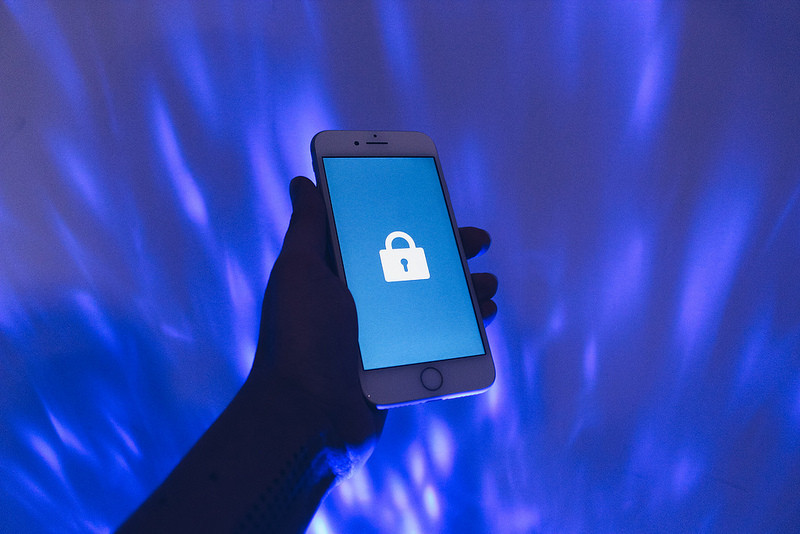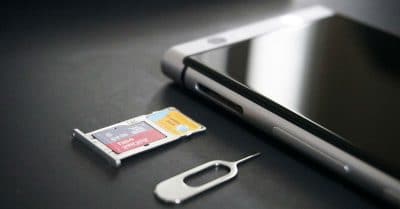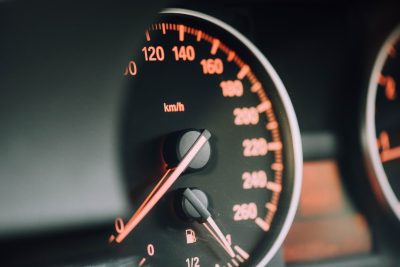Our Complete Guide to VPNs
In today’s online world, privacy is a huge concern. And if you’re looking to keep your browsing safe and private, then you might have heard of the term VPN. Not sure what a VPN is? Then you’re in the right place. We’ve got everything you need to know about VPNs and how to use them in our complete guide.
The Basic Stuff
Before we get into what exactly VPNs are, there’s a bit of basic stuff you need to know first. Every electronic device you use to access the internet has what we call an IP address. This IP address is just like a home address, it marks specifically where your computer or mobile or PlayStation is, making it easy to find.
When you want to access something online, say the BBC news website, your computer sends a message to the BBC site that includes your computer’s IP address. The BBC site takes a look at your address then sends data back to your computer. It’s kind of like regular snail mail, but a whole lot faster.
Unencrypted, direct communication like this might be just fine. Or it might not, depending on who you are, what you’re doing, and how private you’d like to be.
So What Does a VPN Do Then?
VPN stands for Virtual Private Network, and if you get yourself a VPN account there are two things that it will do for you.
The first of these is that it will hide your IP address. Instead of your computer connecting directly to the BBC website, for example, it will connect to the VPN server, and the VPN server will then connect to the BBC website. This hides your address and keeps things nice and private.
Imagine that you’re writing a letter to someone you don’t know very well. You write your letter, put it in an envelope with the person’s address on the front, and your own address on the back (because you want that person to be able to write back to you). You can send that letter straight away, but then that person will know exactly where you live, and maybe, for your own reasons, you’d prefer that they didn’t. So instead you send your letter to a big warehouse (or VPN). The warehouse puts a big sticker over your home address, hiding it, and puts the warehouse address instead, then sends the letter on to your friend. When your friend wants to write back, he addresses the envelope to the warehouse, who receive the letter, and then pass it back to you.
Technically this is kind of a complicated process, but it’s not a difficult concept. You keep your address hidden so no one can find you. So far, so good.
The second thing that a VPN can do is encrypt your information. So instead of sending a regular letter that anyone who intercepts it can read, the VPN puts it in code. The key to the code is sent to your friend, which means that when he receives your letter he can decrypt it and read it. This means that not only is your address private, but the data that you’re sending and receiving is also private. Neat, right?
Uh, Is This Legal?
We’ll get to why you might want a VPN in a second, but first, an important question: is all this legal? Okay, we’ll be honest, there are people who use VPNs to hide the fact that they’re breaking certain laws (particularly illegal downloading or streaming laws). But committing a crime using a VPN doesn’t make the VPN itself illegal. You might beat someone up with a crowbar, which is definitely illegal, but owning a crowbar in and of itself (and using it for its intended purpose) isn’t illegal in the slightest.
In 2016, the UK government passed The Investigatory Powers Act. This gives law enforcement the right to access data, to intercept communications, and generally to keep an eye on what citizens are doing, especially online. This act does NOT ban VPNs (and nor does any other UK legislation). As of the time of writing it is perfectly legal to use a VPN any time you like.
There is a way that the Investigatory Powers Act does affect VPNs, however. If you choose a VPN that’s based in the UK, then that company is required to pass information and data to the UK police if requested to do so. If this is something that bothers you, then simply choose a VPN that’s based outside of the UK for added privacy.
Why Would I Want a VPN?
There are a few reasons that you might want to use a VPN:
- Safety: because information is encrypted, things like entering your credit card number to pay for something are a lot safer. VPNs also help to protect against hackers and surveillance agencies and allow you to use public WiFi hotspots securely
- Privacy: because data is sent encrypted and through a VPN server nobody can connect that data to you (useful if you don’t want anyone to know about your fetish for girls in tubs full of spaghetti, or if you’d rather that your whole online life wasn’t reflected in the ads you receive)
- Location: some services (like Netflix, for example) are location dependent, using a VPN with a server in the US makes a website think that you’re an American customer
- Law Breaking: people who stream, torrent, illegally download material, or who operate in legally grey areas use VPNs to disguise their identity (the same is true for more serious crimes, like online child pornography, where VPNs can prevent a perpetrator being caught)
Obviously, some of these reasons are better than others, and we’re going to assume that you’re not breaking any laws (or any terms of service, since using a VPN to access Netflix outside of your country of origin is against their terms). But the bottom line is that a VPN gives you security and privacy, both of which are good things to have if you’re regularly online.
This is particularly true in the UK since the passing of the above mentioned Investigatory Powers Act. Internet Service Providers (ISPs, your internet company) can see all your traffic and are required to pass the information along to the authorities if they believe you’re doing something wrong, of if the police request your information. With a VPN in place, your ISP can’t see what you’re doing, and therefore can’t release any data about you.
The Pros and Cons of VPNs
The plus side of using a VPN should be pretty obvious. You get privacy and security. The negatives might be less obvious though. There are a few less than positive things you should know about using a VPN:
- Using a VPN can slow down your internet speeds (since data has to go through a “middleman” in the VPN, speeds might not be quite as fast as you’re used to), though this problem is improving as VPNs get better
- A VPN does NOT provide complete anonymity. No service can do that, there are always clever hackers, data leaks, and the possibility that laws might change forcing VPNs to pass data to authorities (in general though, VPNs are pretty safe)
- Whilst a VPN does stop your internet company, and potentially authorities, tracking you, it doesn’t always stop websites themselves from tracking you (cookies are a good example of this)
- Using a VPN and getting caught may cause some sites to ban you or suspend your account. This is especially true for companies like Netflix if you’re trying to access content outside of your home country
- A VPN doesn’t always provide complete privacy and security, since many use “logging.” This means that the VPN itself tracks your internet use and saves the information (which, hypothetically, could be found by hackers or given to authorities). In fact, most VPNs use logging. If this bothers you then you need to look for a VPN that specifically says “zero logging,” meaning no information will be tracked or kept.
How Do I Get a VPN and How Do I Use It?
The good news is that there are loads of VPNs to choose from, and we’ll get down to some details about what you should be looking for below. For now know that you have plenty of options, some free, but most with a small monthly or annual payment. Free VPNs tend not to be as good as paid ones, obviously, though for casual browsing they should be fine.
Once you’ve chosen your VPN and signed up for service using your VPN is pretty simple. Generally, VPNs are not on by default, that is they don’t work until you actually log in. Before you want to browse securely you’ll need to go to the site for your VPN, log in, and perhaps choose which server you want (if you’re looking to access an Australian site, for example, you should choose an Australian server from the list, if you have no preference choose anyone you’d like). And that should be it, you’re free to browse. Don’t forget to log out again when you’re finished!
Free or Paid?
A free VPN might sound pretty good, but you do need to be cautious if you opt to go down this route. Providing a VPN service isn’t cheap, which means a free VPN has to make money somewhere. This might be by showing you annoying ads all the time, which is irritating but not exactly dangerous. However, some less than reputable free VPN services make their money by selling user data or infecting users with malware. Even some big criminal organisations have set up free VPNs.
There are a few decent free VPNs out there, though they’re usually short on features and only do the basics. Check out reviews, and download carefully if you want to avoid trouble.
VPNs and Security: Not all VPNs are Created Equal
Your first concern when choosing a VPN has to be security, and there are a couple of issues here. The first is encryption. Different VPNs use different encryption protocols, and some of these are better than others (meaning some have stronger encryption, making your data safer). When you’re checking out websites of VPNs, they should clearly state which kind of protocol they use. Here’s an overview of the main protocols:
- OpenVPN: OpenVPN is the gold standard of encryption security, and is the standard for commercial software. If possible, this is what you want to get, since it’s by far the best encryption out there.
- PPTP: PPTP is the oldest kind of security protocol, and was standard for a long time. It’s fast and easy to use, but it’s also not very secure at all (simply because it’s been around for so long and many hackers now know how to crack it). Avoid PPTP protocols if possible.
- L2TP/IPsec: Security with L2TP/IPsec is fairly good, but because of the technical aspects of the system (which are too complicated to go into), it’s pretty easy for companies such as Netflix to block VPNs that use L2TP/IPsec, meaning your VPN might end up useless. Also, L2TP/IPsec is NOT recommended for mobile users.
- SSTP: Again, security standards here are good, making it a safe choice… probably. The problem is that this protocol is designed and owned by Microsoft, meaning you’re giving a big company access to your data. There’s also the chance that the company have built “back doors” into the system to allow authorities to gain access if necessary. Whilst security is good, OpenVPN (which is a public software and not owned by any one company) is still probably a better bet.
- IKEv2: IKEv2 has great security. The only downside here is that it can be difficult to use and set up (so it’s for the more technically inclined), and it’s not a common method used by most VPNs, so it’s tough to find.
The other security question is whether a VPN is really enough. And the answer to that is almost certainly yes. If you’re in the UK and you’re not breaking any serious laws then a VPN should be more than enough to protect you. There are other ways of preserving anonymity online, such as Tor browsers, but these are really only necessary if you’re doing something hardcore (trying to access western internet sites when in a country that has strict surveillance and data laws such as China, for example).
Encryption Standards
VPNs use different standards of encryption too (basically, algorithms that are used to encrypt your data), to keep your data safe. In regularly available VPNs (that don’t cost a fortune), there are only really three choices for encryption, and again, when shopping, a VPN website should clearly state which standard they use:
- AES: AES 256 is the strongest form of encryption you’re likely to see in a VPN, and even the US government uses this method. It’s super hard to crack, and better than other methods at handling big amounts of data (meaning it’s faster). If you’re very concerned about privacy then it might be worth paying a little more for a VPN with AES, but the majority of people should be more than satisfied with Blowfish.
- Blowfish: Blowfish 128 is pretty much the standard for most VPNs these days, and it’s pretty safe. It’s not the BEST method of encryption, but it’s difficult to hack and decrypt and is more than enough for most people.
- Camellia: Camellia is the newest encryption method found in commercial VPNs, and it’s fast and secure. The only bad news is that it’s so new that not many VPNs offer it as of yet.
So What Should I Be Looking For?
If you’re comparing VPNs, then there are a few things that you should be looking for:
- Encryption Protocol: OpenVPN, L2TP/IPsec, etc.
- Encryption Method: AES, Blowfish, etc.
- Kill Switch: Even the best VPNs can occasionally fail, and if your VPN connection drops then your real IP address can be revealed to the internet site you’re currently visiting. If a VPN has a kill switch this cannot happen, since if the VPN connection drops the kill switch simultaneously cuts off your internet connection, keeping your data safe and private.
- Logging Policy: zero logging, meaning they keep no information about your browsing habits, gives you more privacy
- Server Locations: is the VPN server based in the UK? (in which case they have to keep data about you as specified under the Investigatory Powers Act), does the VPN have servers in a country you need? (such as a US server to access US Netflix, for example)
- Speed: Is the VPN going to slow your internet speeds significantly? (you’ll probably need to test out the VPN to find out this information)
- Cross Platform: Can you use your VPN account on your Windows PC and your Android Phone? Your iPad? Your iPhone? Some VPNs work on all platforms, but not all do.
- Connections: Can you connect many devices simultaneously to your VPN account or only one at a time?
- Miscellaneous: Is there tech support? Do you get a free trial? Is there a money back guarantee in case the VPN doesn’t work as you want it to?
A Word About Mobile VPNs
If you’re specifically looking for a VPN to use on your mobile then there are a few concerns that will affect you. Many VPNs drain battery power, have poor coverage, and eat up memory on mobile devices. Because of this, it’s best that you choose a VPN that’s specifically marketed towards mobile users. These generally have special features, like data compression and a smaller memory footprint, making them better suited to mobile users.
Can I Torrent Through a VPN?
Technically, the answer to this question is yes as long as the terms of service of the VPN do not specifically forbid torrenting. In fact, many people get a VPN because they believe it will safely allow them to torrent.
However, whether you choose to torrent or not, you should know that torrenting is illegal in the UK. By torrenting, you will be in breach of the Copyright, Designs and Patents Act of 1988, as well as the Digital Economy Act of 2010. You can be fined or even imprisoned for torrenting under both these acts. In addition, most ISPs (Internet Service Providers) forbid torrenting in their terms of service, meaning you could lose your internet connection or even be sued for breach of contract.
VPNs and Locations
Many VPNs have servers in different countries, and choosing a server based on a country should be fine. However, you do need to be careful in choosing a VPN depending on which country the company itself is based in. We’ve already discussed this a little when talking about the Investigatory Powers Act. If you’re truly worried about privacy and you do not want VPNs to collect any information about you, you might want to avoid VPN companies that are based in the following countries. This is due to the laws of the home countries and how they require companies to collect and store data:
- The UK
- The USA
- Australia
- Canada
- New Zealand
- France
- Netherlands
- Denmark
- Germany
- Belgium
- Norway
- Spain
- Sweden
- Italy
Fortunately, there’s a vast range of VPN companies that are based outside of these countries, so you should still have plenty of choices!
VPNs: The Bottom Line
A VPN can be a great way of preserving your security and privacy online. The technical stuff behind VPNs can be quite complicated, particularly when it comes to encryption methods and protocols. However, actually using a VPN is pretty simple, and it’s not something you should be afraid of doing if you want better online privacy and security.
Using VPNs is perfectly legal in the UK, but you’ll need to choose your service carefully. With some research and careful shopping, however, you should be able to find a great service that works for you. Not everyone who uses a VPN is up to no good, and if you want a secure and private online experience, a good VPN service is the way to go.




